Two WikiLeaks cables released yesterday and dated January 2008 say that former Brazilian President Luis Inacio Lula da Silva and other senior officials were concerned that Venezuela’s Hugo Chavez would attempt to seize Guyana’s Essequibo by force.
Relations between Guyana and Venezuela have been on the upswing in recent years and the two cables are the first disclosure that there were concerns in Brasilia about Chavez’s intentions. When he first came into office, Chavez had engaged in much sabre-rattling about Essequibo but in recent years has adopted a more conciliatory tone and going as far as to indicate that Caracas would not interfere as it traditionally did with Guyana’s investment projects in the Cinderella County.
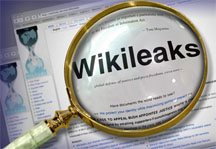
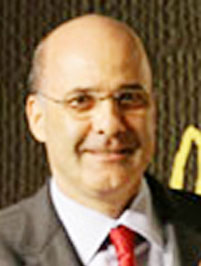
The cables were dispatched from Brazil by US diplomats to Washington and copied to the US Embassy in Georgetown. Both were dated January 2008. One was dispatched by the US Consul Thomas White in Sao Paulo, Brazil on January 15, 2008 and the other by US Ambassador to Brazil Clifford M Sobel on January 31st, 2008.
White’s cable was based on a conversation that he had with former Minister of Finance Antonio Delfim Netto on January 7, 2008. Netto was then a consultant and the two discussed Brazilian politics and relations between Brasilia and Caracas. It was in this cable that the concerns about Venezuela’s designs on Essequibo were starkly stated.
According to White, Netto said “Lula is worried about Venezuela’s “serious” border problems with its neighbors, particularly Colombia and Guyana. Chavez has his sights on “one third” of Guyana’s territory, and if Venezuela were to invade Guyana, Caracas would likely militarize all of Venezuela’s south, antagonizing the indigenous populations there. (Comment: Former President and sitting Senator Jose Sarney has expressed similar concerns with regard to Chavez’s designs on Guyana, per reftels D and E. End comment.) Delfim said this will have an impact on Brazil because the territories of at least one tribe, the Yanomami Indians spills over the Venezuela-Brazil border. Delfim believes that, should Venezuela invade Guyana, the Yanomamis will declare independence, forcing Brazil to get involved in a Venezuela-Guyana war.”
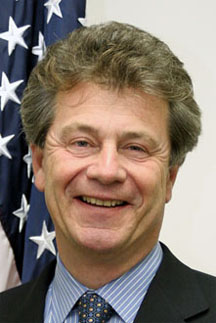
This section of the cable was prefaced by Netto, according to White, saying that Brazil’s ties with Venezuela were tense and deteriorating, but “Lula is seeking to avoid an open confrontation that could cause a serious rupture in bilateral relations and have an impact on the continent as a whole”. The cable said that Delfim described Lula, whose term in office recently came to an end, as someone who “believes deeply in South American unity” and thinks Latin American poverty brings the region’s people together. Delfim further said, according to the cable, that Lula did not want to alienate the Venezuelan leader.
Secret
Sobel’s cable which was classified as secret related conversations he had with then Brazilian defence minister Nelson Jobim and other officials. Sobel’s opinion was that Venezuela had become the central focus of Brazil’s regional stability concerns. He said in the cable “Brazilian observers regularly and publicly express general concerns about Chavez’s destabilizing influence on Bolivia and Ecuador, as well as his troubled relationship with Colombia, even though Ministry of External Relations (MRE) contacts refuse to admit to us even in private that they are worried about Venezuelan interference in other countries. More
importantly, the Ambassador has now been told by three respected members of the foreign policy elite—Senate Foreign Affairs and National Defense Committee head Heraclito Fortes (refs E and F), sitting senator and former president Jose Sarney (refs G and H), and Former Finance Minister Antonio Delfim Netto (ref I)—that they believe Venezuela under Chavez could well make a military effort to reclaim the half of Guyana (west of the Essequibo River) that it considers lost territory, principally as a way to deflect public attention from domestic woes.”
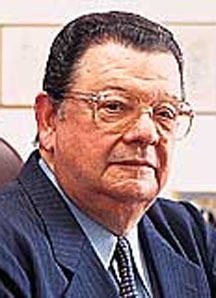
Sobel stated that the general policy approach of Lula and his foreign policy team in seeking to maintain stability in the area did not differ enormously from that of his predecessors; “historically, Brazilian governments have avoided taking sides in Latin America and followed a policy of trying to maintain good relations with all of their neighbors. Uncertainty about Venezuela has added a new element, however, leading to
a more concerted effort to contain Chavez. Brazil is the leading advocate of Venezuelan admission to Mercosul, a move that, if approved by the Brazilian and Paraguayan congresses, will further complicate both the stated economic integration and political objectives of the organization”, Sobel posited.
He added that from Lula’s point of view, bringing Chavez into a political grouping in which Brazil has strong influence made sense.
Similarly, he pointed to Lula’s proposal to create a new grouping of South American regional defence ministers which he said Jobim was actively pursuing, might achieve little in the way of defense coordination, but would serve the political objective of bringing Caracas and “other regional troublemakers into a common organization that Brazil could use to exercise a measure of control.” Observers have suggested that this is exactly what Lula set out to do via the Union of South American States (UNASUR).Sobel said that while the Brazil proposal to serve as a hub for servicing Russian equipment in the region would do little to grow Brazil’s defence manufacturing capacity “it does make sense if Brazil believes that performing such a function could help control the spread of Russian
weapons in the region.”
Sobel further told Washington in the cable that border security and sovereignty concerns also continue to drive Brazil’s desire to re-build its military and bolster its air defences. “Brazilians continue to perceive their long border with ten neighboring countries as vulnerable,
justifying maintenance of a strong defense posture. The most likely scenarios with direct military implications for Brazil involve non-state actors such as the FARC and international criminal organizations operating across borders.
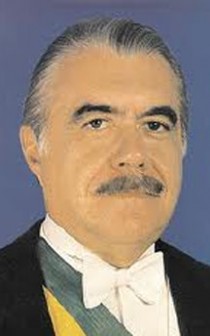
Nonetheless, although it seems highly unlikely that the GOB’s first reaction would be to send in the troops, Brazilians see a military incursion by Chavez into a neighboring country as plausible, in light of Chavez’s unpredictability, and see having a strong military as a deterrent. Moreover, they continue to hold suspicions regarding the intentions of the international community—including the United States (ref J)—with regard to the Amazon. Brazil sees a strong military
as an important element in backing up these assertions of sovereignty over the Amazon.”
The incursion
In the incursion on November 15, 2007, thirty-six members of the Venezuelan military led by a general invaded Guyana’s land and airspace, blowing up two Guyanese mining dredges in the Cuyuni River and making overflights in two helicopters.
The Guyana Ministry of Foreign Affairs had issued a protest about the incursions and summoned Venezuelan Ambassador Dario Morandy at which the Government of Guyana’s grave concerns were communicated.
Ambassador Morandy had told the media that he had met Guyana Foreign Minister Rudy Insanally in the morning when the matter was discussed. However, he said that the Venezuelan military had not violated Guyana’s borders, and that the area from which the dredges had been evicted belonged to his country. “Venezuela was protecting its natural resources and we need to remove all illegal miners from the area,” the Ambassador said. He also said that the military had not used explosives.
Senior army sources had discounted Morandy’s statements, noting that the dredges owned by Anthony Ramlall and Dereck Cabose had been anchored in the Cuyuni River at ‘Iguana Island’, an area which belongs to Guyana.
The army source said that soldiers stationed at Eteringbang had been put on high alert and had been carrying out patrols in the area. The source said the GDF base at Eteringbang was some 40 miles from where the dredges were blown up, and about two hours away by boat. The source said that when ranks received news of the incident they responded immediately, but by the time they arrived, the Venezuelan military had already pulled out. “We believe this attack was centrally directed”.
Brazil’s objectives
The remainder of the Sobel cable gives an American insight into Brazil’s regional objectives and its aspirations to a position on the global stage.
Sobel said in his cable “Beyond concerns about Chavez and regional and border security more generally, Jobim’s priorities suggest that Brazilian interests are also motivated by Brazil’s growing desire to take its “rightful” place among the world’s powers and to be seen as a worthy of a permanent UN Security Council seat. It is this objective, which senior GOB policy makers place above all other foreign policy goals, that is driving Brazil’s interest in a nuclear submarine (ref K).”
He added: “Brazilian leaders believe that now is their time to play a more important global role. This, combined with Brazil’s continuing concerns regarding regional stability, the threat posed by Venezuela, and border security, will form the backdrop to the discussions and to Brazilian positions.”
Sobel went on to say “that while we may not agree with Brazilian views of Brazil’s security situation, they will nonetheless form a framework within which we must approach our discussions with Minister Jobim and other GOB officials. While we should seek to focus on more realistic areas for bilateral defense cooperation, such as peacekeeping, we cannot afford to dismiss these core Brazilian concerns, which will be important considerations as we seek to exploit the opportunities presented by Jobim’s visit to Washington in March and Pol-Mil talks in April.”
White’s cable said that Delfim also gave his view on Lula’s successor.
“Delfim said Lula’s preferred successor would be Minister (Dilma) Rousseff or Social Development and Hunger Combat Minister Patrus Ananias, but noted that neither is actually apt to win the election. Delfim stated instead that Sao Paulo Governor Jose Serra of the opposition Social Democracy party (PSDB) is most likely to become Brazil’s next president.” Rousseff was the candidate and beat Serra in the run-off last year. She was sworn in on January 1 this year.
White’s cable also offered a further assessment of Rousseff by Delfim. “Minister Rousseff is a key player in further driving infrastructure development, Delfim said. Rousseff has become a stronger supporter of private sector investment in the aftermath of Brazil’s successful road concessions in October 2007. Her present position is a significant change because Rousseff, an erstwhile leftist militant described by Delfim as the “most important person in Brazil’s government” after the president, has an overwhelming amount of influence on Brazil’s national agenda. Although Rousseff continues to harbor suspicions about the private sector – Delfim stated that Rousseff believes Brazilian business is run like a “cartel and always has tricks up its sleeve” – she now sees the benefits of non-government investment. Spanish firms, with active support from Spain’s government which, according to Delfim, practices an “aggressive industrial policy,” are likely to be the largest foreign investors in Brazilian infrastructure. With respect to Brazil’s ongoing civil aviation crisis, Delfim predicted that Rousseff will support privatizing some of the country’s airports, a move which could be the beginning of a larger privatization process encompassing such areas as railroads and ports.”
The two cables are among thousands released by WikiLeaks founder Julian Assange in recent weeks and which have kept the international diplomatic community in thrall. Several hundred cables are said to have emanated from the US Embassy in Georgetown but none of these has been released as yet by any of the media outlets given access to them by Assange.





